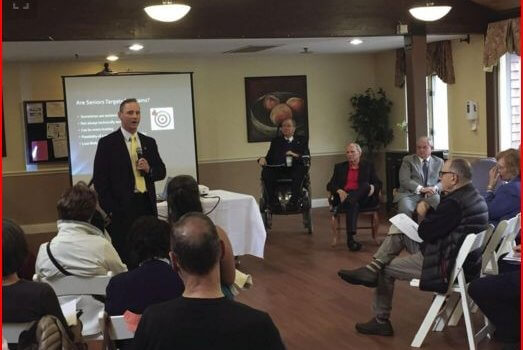EXETER — After three years of work spanning two states and involving scores of officials and volunteers, the Wood-Pawcatuck Wild and Scenic Rivers Study has been completed and is now headed first to the towns for their approval and, ultimately, to the United States Congress.
The announcement Monday, at the Wood River canoe and kayak access in the Arcadia Management Area in Exeter, was made by study coordinator Denise Poyer of the Wood-Pawcatuck Watershed Association.
“We did it!” Poyer told the assembled guests, who clapped and cheered. “We documented that the seven rivers in the Wood-Pawcatuck watershed have outstandingly remarkable values that absolutely qualify for them for the national Wild and Scenic River system, and we developed a stewardship plan that will help protect these rivers for future generations.”
The 300-square-mile watershed is the sole-source drinking-water aquifer for thousands of people in southern Rhode Island and Connecticut. The rivers under consideration for the Wild and Scenic designation are the Beaver, Chipuxet, Green Fall-Ashaway, Queen-Usquepaugh, Pawcatuck, Shunock, and Wood rivers.
Members of the Rhode Island and Connecticut Congressional delegations sponsored the Wood-Pawcatuck Watershed Protection Act in 2014, which paved the way for the formation of a study committee to document the special qualities of the rivers and determine how best to protect them.
U.S. Sen. Jack Reed, D-R.I., who has been credited with ensuring the passage of the Wood-Pawcatuck Watershed Protection Act by attaching it to a Defense Authorization Bill, said the designation of the watershed would be a fitting tribute to the national Wild and Scenic Rivers system, which will mark its 50th anniversary in October.
“We’re celebrating 50 years,” Reed said. “We have 12,000 miles of scenic river. We can use a few more and they can be located right here in Rhode Island.”
Recalling happy times spent on the Wood River with his children, U.S. Sen. Sheldon Whitehouse, D-R.I., said he was ready to do what he could to make sure the designation is passed.
“These steps that you have all taken will power us up and enable us to take the final step that will see to it that these rivers are protected for generations and generations,” he said.
U.S. Rep. James Langevin said it was time to add the Wood-Pawcatuck watershed to the federal system.
“There are some 208 rivers that have been given this (number) designation in 40 states, and I certainly look forward to seeing the Wood-Pawcatuck being designated 209,” he said.
Also present for the announcement was U.S. Rep. David Cicilline, D-R.I.
“We are really privileged to live in a state that has a citizenry that really understands our environmental responsibilities and what our waterways mean to our ecosystem and our quality of life,” he said.
U.S. Senators Richard Blumenthal and Chris Murphy and Congressman Joe Courtney, all Democrats from Connecticut, were the other co-sponsors of the Wood-Pawcatuck Watershed Protection Act.
Reading a written statement from Courtney was Emma King, deputy director of Conecticut’s Second Congressional District.
“I am proud to lend my continued support to this multi-state partnership to conserve and celebrate this ecological treasure in our own back yards,” Courtney wrote.
Eight Rhode Island towns and four in Connecticut took part in the Wild and Scenic study. Assisted by the National Park Service, the study committee included town-appointed representatives from Westerly, Charlestown, Hopkinton, Richmond, Exeter, North Kingstown, South Kingstown, and West Greenwich. Connecticut representatives were from the towns of North Stonington, Sterling, Stonington, and Voluntown.
Several state agencies and environmental-advocacy organizations also participated in the study: the Rhode Island Department of Environmental Management, the Connecticut Department of Energy and Environmental Protection, the Wood-Pawcatuck Watershed Association, Save the Bay, The Nature Conservancy, and the Audubon Society of Rhode Island.
Eric Thomas of the Connecticut Department of Energy and Environmental Protection said the two states had collaborated effectively on the study.
“It was natural for us to not only work at the agency levels, but work at the community level for the four communities in Connecticut, matching up with the Rhode Island communities to look at our shared resource within the watershed,” he said. “The study has really brought us all together for a number of years now, and today’s outcome is just another step in the whole process.
Representing the Town of Westerly was town council member Jean Gagnier, who did not serve on the study committee.
“We’ve got a a great representative, Jon Ericson, and we have Joe MacAndrew, who’s been appointed by the Town Council to serve on the committee,” he said.
(Harrison Gatch also represented Westerly on the committee as a council appointee.)
Jamie Fosburgh of the National Park Service’s Boston office said once the watershed receives a Wild and Scenic designation, its status at the federal level will undergo a significant change.
“The first thing is establishing the national priority for all federal agencies, so that becomes the policy of the United States, to recognize these values as of national significance,” he explained. “Directly, the Park Service, through Congressional appropriations, supports the stewardship committee that will be formed after designation to implement the stewardship plan.”
Study Committee Chairman and Hopkinton Planning Clerk Sean Henry said the study will now go back to the towns for approval.
“It’s collaborative with all the local towns,” he said. “Everyone on the committee was appointed by their town councils. We’re going to be going back to the towns when we have the stewardship plan ready, and hopefully, they’re going to approve it.”













